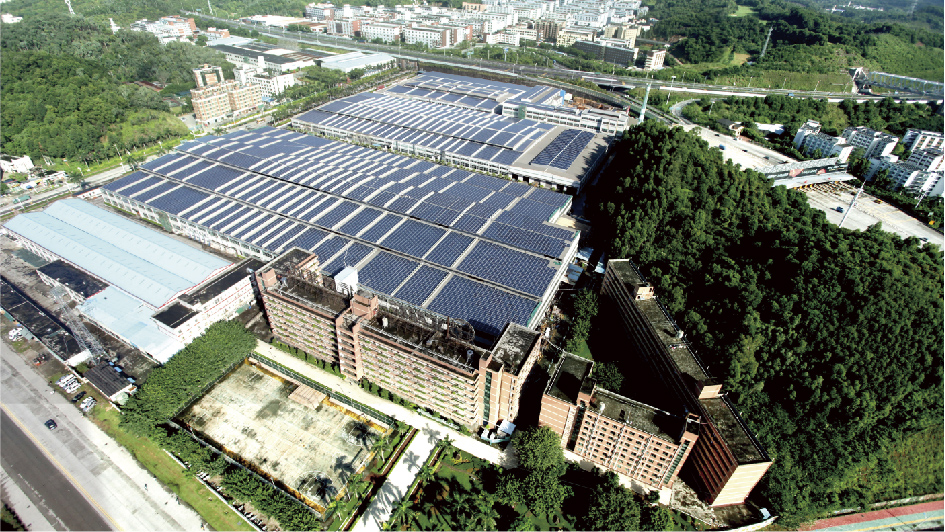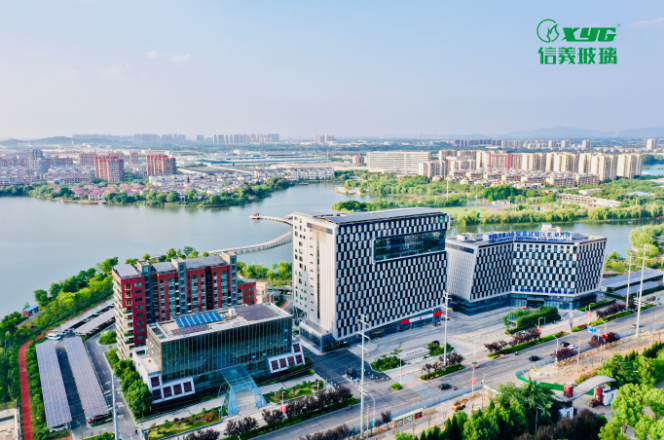Xinyi Glass Invests $700M in Egypt's Suez Canal Zone
Published: March 31, 2025 18:32
Xinyi Glass (00868.HK), a global leader in the glass industry, has officially announced a $700 million (approximately 5.08 billion yuan) investment to construct a large-scale solar photovoltaic glass production facility in Egypt's Suez Canal Economic Zone.
This investment not only sets a company record for its largest overseas venture but is also viewed as another landmark in the global expansion of China's photovoltaic industry supply chain.
The project will be implemented in two phases and is expected to produce 1.5 million tons of solar photovoltaic glass and 1.1 million tons of high-purity quartz sand annually once operational. Products will primarily target export markets in Europe, the Middle East, and Africa, helping Egypt become a regional hub for photovoltaic manufacturing.

source: Xinyi Glass
Global Ambitions of a Photovoltaic Glass Leader
According to public records, Xinyi Glass was established in 2006 with headquarters in Hong Kong. The company's business covers four major segments: float glass, automotive glass, architectural glass, and photovoltaic glass, making it one of the few glass enterprises globally to achieve full industry chain integration.
With technology-driven development at its core, the company holds numerous proprietary intellectual property rights and operates production facilities across China's Jiangxi province, Ordos, and Malacca, Malaysia. In recent years, Xinyi Glass has strategically shifted its focus toward new energy, particularly excelling in photovoltaic glass, where its production capacity and technological capabilities rank among the world's best.
In the photovoltaic sector, as one of the world's largest manufacturers of photovoltaic glass, Xinyi Glass's transformation trajectory serves as an industry benchmark. The company's photovoltaic strategy began around 2010, building on its established position in automotive and architectural glass. In 2013, it astutely recognized the photovoltaic trend and built its first photovoltaic glass production line in Wuhu, Anhui. Today, its photovoltaic division encompasses a full range of products including ultra-white rolled glass, backsheet glass, and AR-coated glass, establishing long-term supply relationships with leading module manufacturers like LONGi and JinkoSolar.
In April 2024, the company's 3.4 billion yuan investment in Shangrao, Jiangxi province became fully operational with four furnaces (each with a daily melting capacity of 1,200 tons) and 16 ultra-white glass production lines. With projected annual revenue of 4 billion yuan, it has become a key photovoltaic glass supply base in Eastern China. The same year, a 4 billion yuan investment in Ordos added four new production lines, each with a daily melting capacity of 1,500 tons, further consolidating the company's domestic market share.
Overseas, Xinyi Glass first established a photovoltaic glass base in Sarawak, Malaysia back in 2019, and added production lines in Haiphong, Vietnam last year. The Egypt project marks its first entry into the African market. Meanwhile, the company plans to invest $3 billion in Indonesia to develop quartz sand resources, ensuring stable supply of upstream raw materials.
Growth Insights from Financial Reports
Performance-wise, despite rapid expansion in its photovoltaic business, Xinyi Glass's 2024 financial reports show mixed results. Annual reports indicate company-wide revenue of 22.32 billion yuan, down 8.1% year-on-year, with profit attributable to shareholders at 3.37 billion yuan, a 31% year-on-year decrease.
The photovoltaic segment contributed over 40% of revenue, with net profit surging 68% year-on-year. Notably, its photovoltaic glass gross margin continues to lead the industry at 32.5%, primarily benefiting from cost optimization through technological iterations. The company's pioneering "one furnace, multiple lines" process has achieved a daily melting capacity exceeding 1,000 tons per line, 20% higher than the industry average.
Performance pressure mainly stemmed from plummeting float glass prices (with significant price drops in both Chinese and overseas markets), with the core factor being shrinking demand due to a depressed real estate sector. However, the automotive glass business grew against the trend by 16.4%, contributing 6.31 billion yuan in revenue, benefiting from rising new energy vehicle sales in China and expansion in overseas aftermarkets.

source: Xinyi Glass
Breaking Through Industry Overcapacity
Currently, the photovoltaic glass industry faces dual pressures from overcapacity and price wars. Xinyi Solar, an associate company of Xinyi Glass, saw its 2024 net profit plummet by 73.8%, with losses attributed to falling photovoltaic glass prices, inventory devaluation, and equipment shutdown losses.
In response, Xinyi Glass is mitigating risks through technological upgrades (such as improving furnace efficiency) and global diversification. The Egypt project's advantages in low-cost location and policy benefits (such as Egypt's target of 42% renewable energy by 2035) may open new growth opportunities.
Although Xinyi Glass's stock price declined in early 2025 due to performance pressures, favorable industry policies since March, along with self-discipline initiatives and slight rebounds in component prices, have boosted market confidence.
As the global carbon neutrality process accelerates, the International Energy Agency predicts that photovoltaic installation demand will double by 2030 compared to current levels. Xinyi Glass's global production capacity layout undoubtedly provides sufficient "ammunition" for this energy revolution.
Conclusion
Xinyi Glass's strategic move into Egypt represents not only a critical step in the company's globalization strategy but also reflects the deepening trend of China's new energy industry chain expanding internationally.
Facing industry cyclical fluctuations, the company needs to balance capacity expansion with financial stability, while technological iteration and market diversification will be key to breaking through challenges.
